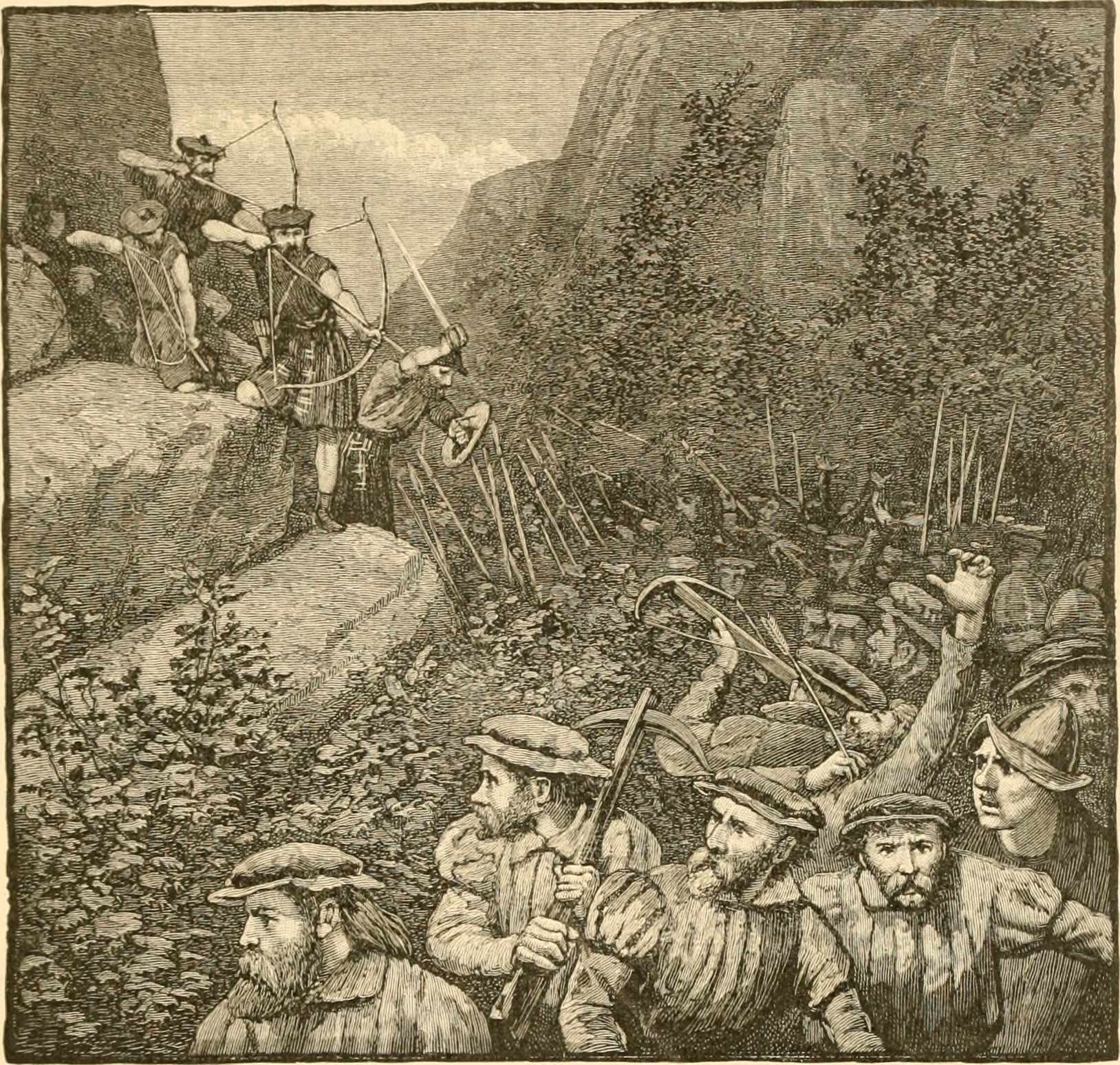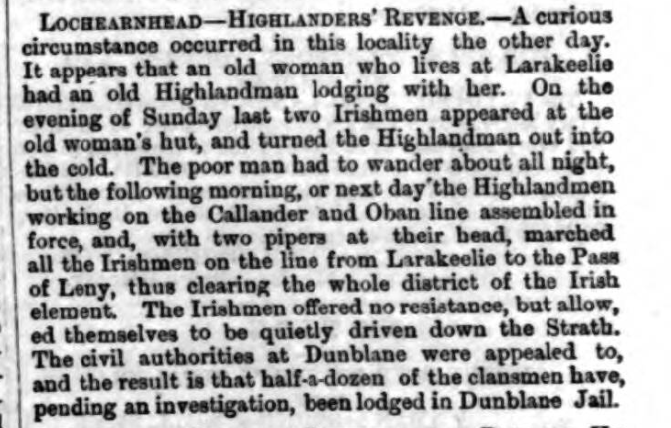n. What folk in the Netherlands once called eggs on toast.


n. What folk in the Netherlands once called eggs on toast.


TINCHELL. n. a ring of hunters who surround a chosen area and close in to entrap any quarry. In 1868, a minor incident ignited anti-Irish sentiment around Lochearnhead. A tinchell of Highlanders, led by pipers, marched Irish workers 15 miles out of the area.


Dictionary of the Scots Language (https://dsl.ac.uk/entry/snd/tinchel)
Inverness Courier. 11th June 1868. pg. 3
Twitter. Alex Mulholland (@molach95) https://twitter.com/molach95/status/1288156150546993154?s=20
v. to transfer milk from a neighbour’s cow to another by magic. Spells were cast using a tether made from a human hair rope. A skill believed to be held by witches and Highlanders.

Dictionary of the Scots Language. https://dsl.ac.uk/entry/snd/milk
n. Mutton from dead sheep.

On the 21st January 1794, a sudden storm hit the Solway Firth area causing major floods. The toll, found at low tide on the Beds of Esk was:
1840 sheep
9 cattle
3 horses
3 people
45 dogs
180 hares
and innumerable smaller animals.
It was remembered as the Goniel Blast.
Dictionary of the Scots Language. https://www.dsl.ac.uk/entry/snd/goniel
Hyslop, J.D. and R. Hyslop (1912) Langholm as it was : a history of Langholm and Eskdale from the earliest times. John Menzies & Co, Edinburgh, pg. 850
Extracts from burgh and kirk session records can sometimes paint a *really* vivid picture of the day to day soap operas that played out in Scotland at the time. Often folk were called in to account for swearing or slandering a fellow citizen. Sometimes, the minute taker took down verbatim what insults were exchanged. Here are some by town:
ane friar’s get!
ane friar’s yawde!
sclaverand knaif!
ane brekair o spowsage!
huir (of various kinds, including, raistit, glengoir, blawid, commoun)
base borne swyngeour!
scheipsteillar!
theifous loun!
ane harlott!
witches get!
ae baise knaive!
a wud thief!
a wud loon!
huir (debuschit- vile-)
clattie badrouns!
druken dyvor!
slavering, no wordy to dicht schoone!
ane rascall!
ae preists huyr!
ae skaybell!
ae matteyne!
ae lowne!
ae mikkel knaif!
ane woolfe in sheepes cloathing, ane villaine!
ae lowsy smyk!
But it those insults hurled by folk from Elgin between 1592 and 1628 that are my favourites. These are all from the Elgin burgh records:
Ye glangorie witche!
Ye auld doitit dyvour!
Theiffis get, yir father is borrowit from the widdie!
Harlot!
Ye hen pyker ye!
Ye ar lyk ae witche cairling!
Filthy swonjour!
Ye choppit on yir teithe lyk ane grandgorie loun!
There is lytill guid in yir face ye grandgorie lipper!
Spyced harlat!
Druken harlat!
Wyle harlat!
Yir mother is a witch an rowit in a riddell!
Awa harlat and thow com heir I sall pat ane boykin in thy hipp!
Wagabond!
ane fals lyar!
Egiptian knaive!
Ye skowkand sow, a sow sittis in the sadell!
Ye gae wi blanket about yir arse, taw ledder and auld clout schoyn!
ane Englisch kneif!
Ye mensworne dog!
Ye ar tarvaill, ye debtit dyvour!
AUVISBORE. n. The hole left in a piece of wood after the knot has fallen out. Thought to be the work of faeries, who push the knot out and spy on you.

PANDORE. n. large oyster from Prestonpans. Supposed to be big because of the proximity to the doors of the saltpans. Prestonpans oyster fishers would sing “dreg sangs” to charm the oysters into their nets. “Oysters are a gentle kin, wullna tak unless ye sing”

CAISEAN-UCHD. n. Breast-strip of a sheep that was singed and sniffed to ward off evil spirits in a house. Passed around clockwise for the next person to inhale. Bad luck if it went out on your turn. Used at Xmas only in other places, but all the time on Islay. It must’ve smelled awful.
GOOL-RIDERS. n. mounted police that checked fields for corn marigolds and collected fines from farmers. A Mediterranean plant, it caused problems in the reign of Alexander II (1214-49)–his statute was still followed in Cargill as late as 1808.

We open on Dumbarton’s streets, the year is 1632.
ISOBELL: “Ye CLATTIE BADROUNS, ye!”
MARTHA: “Awa wi ye, ye WITCHES GET!” (both lunge and fall to ground, Martha atop)
BURGHERS: “Here! Yous! Gie’s a pound each!”
*end scene*

